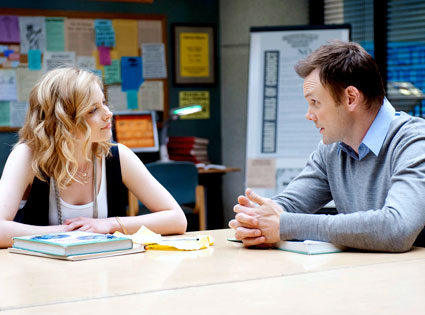
Over the last week of my hectic semester I found that I had three listening trends that I’m trying to make some sense of now that the semester is over. First, I can credit an interest in period instrument performances to Dr. Bruce Brown at USC; as I was studying for my final exam, I fell in love with the Beethoven and Mozart performances required as listening. Several of these recordings feature a pianoforte, which brings attention to each composers’ considerations of the range and texture of this new (at the time) instrument. What a difference! Subsequently, I borrowed the Trevor Pinnock collection of Mozart symphonies, and the John Eliot Gardiner collection of Mozart piano concertos, both on Archiv, from the library. Recommended.
Second, I can’t stop buying metal albums off of Decibel’s Best Metal of the Decade list. If you remember from a previous post, my metal phase started with Ian Christe’s book this summer, which led me to several albums I’ve come to like, but albums from the Decibel list that I’d never ever heard of are really stretching my personal aesthetic. I listen to a lot of metal out of interest, but now I’m listening because I’m sincerely addicted to it. Opeth’s Blackwater Park, which I bought a year or so ago, is now at the top of my personal playlist, despite serious reservations about Mikael Akerfeldt’s occasional crooning (I prefer it when he sounds like the cookie monster). Two things keep bringing me back:
1. Typically the songs will alternate between soft and loud passages, without referring to conventional song form. This is done so poorly so often that I’m enjoying how successfully this band can pull it off. The album comes across like a Romantic nineteenth-century symphony, as problematic as that can be for my personal aesthetic. The New Grove encyclopedia defines Romanticism as wild and unruly compared to classicism, which is a challenge for me because, as a Christgau-ian pop music scholar, I’m a classicist. But Opeth create rewarding peaks with these waves of action and emotion tempered by somber moments that still remain consistent within a larger metal aesthetic (which, I theorize, is essential for the genre). So rather than soak in each moment as a moment, I find the album gains power when you can hear each part within the larger composition, which happens as the album becomes more familiar.
2. Also, though I’m not a big fan of metal’s obsession with suspended chords and the lot, Akerfeldt finds some sweet notes within the harmony when he writes melodies, and the lead guitar parts pick up on them as well. I haven’t completed any kind of analysis, but to my ears it’s like when a jazz performer nails a flat 7th or another non-diatonic note within a chord—it’s unexpected and yet so perfect. And this happens on Blackwater Park quite often. Yummy.
Other than Blackwater Park, I’m listening to Cave In’s Jupiter, Isis’s Oceanic, and Mastodon’s Remission, and a few others, though I like these four the best so far.
The third listening trend is my addiction to Against Me!’s New Wave three years late. I finally picked it up at Rockaway records a couple weeks ago, and this week I’ve had it in steady rotation. For the record, 2007 is my favorite year for music. I get all tingly inside when I think about the first time I heard M.I.A.’s Kala, Arcade Fire’s Neon Bible, Lily Allen’s Alright, Still, and Rilo Kiley’s Under the Blacklight. I listened to Burial’s Untrue when I walked around Los Angeles at night during my first trip to California to interview with USC in January 2008. Crazy Ex-Girlfriend made me a huge Miranda Lambert fan. And 2007 was the year I taught my first music classes, so all of the music of this time is special to me. Anyway, that said, it took me a while to figure out New Wave.
In his Consumer Guide review, Robert Christgau writes that New Wave is produced by “Butch Vig (of Garbage, not Nirvana).” This doesn’t make a lot of sense after only a couple listens to the album; the compositions are terse and the production abrasive, which is unlike both Vig’s production for Garbage and Nirvana. But, again, with familiarity, the sound of each song opens up: you hear the layers of guitar overdubs, the backwards tape effect on “Borne on the FM Waves of the Heart,” and the background vocals on “Up the Cuts,” all of which are more typical of Garbage than Nirvana. And then you also hear the sublime moves outside of punk harmony in just about every song, and you hear the lyrics.
Ah, those lyrics! “Thrash Unreal” and “Borne on the FM Waves” have so much clear-eyed, unsentimental empathy, and so much love. And the calls for change in “New Wave” and “Up the Cuts” are so universal and full of hope. I just love it. In fact, I love it so much that I still haven’t absorbed the album past “Borne on the FM Waves”; after that song, I can’t help but go back to the beginning and listen to all six songs again.
Okay, that’s all for now. Below are links to Blackwater Park and New Wave over at Grooveshark. Thanks for reading!


















